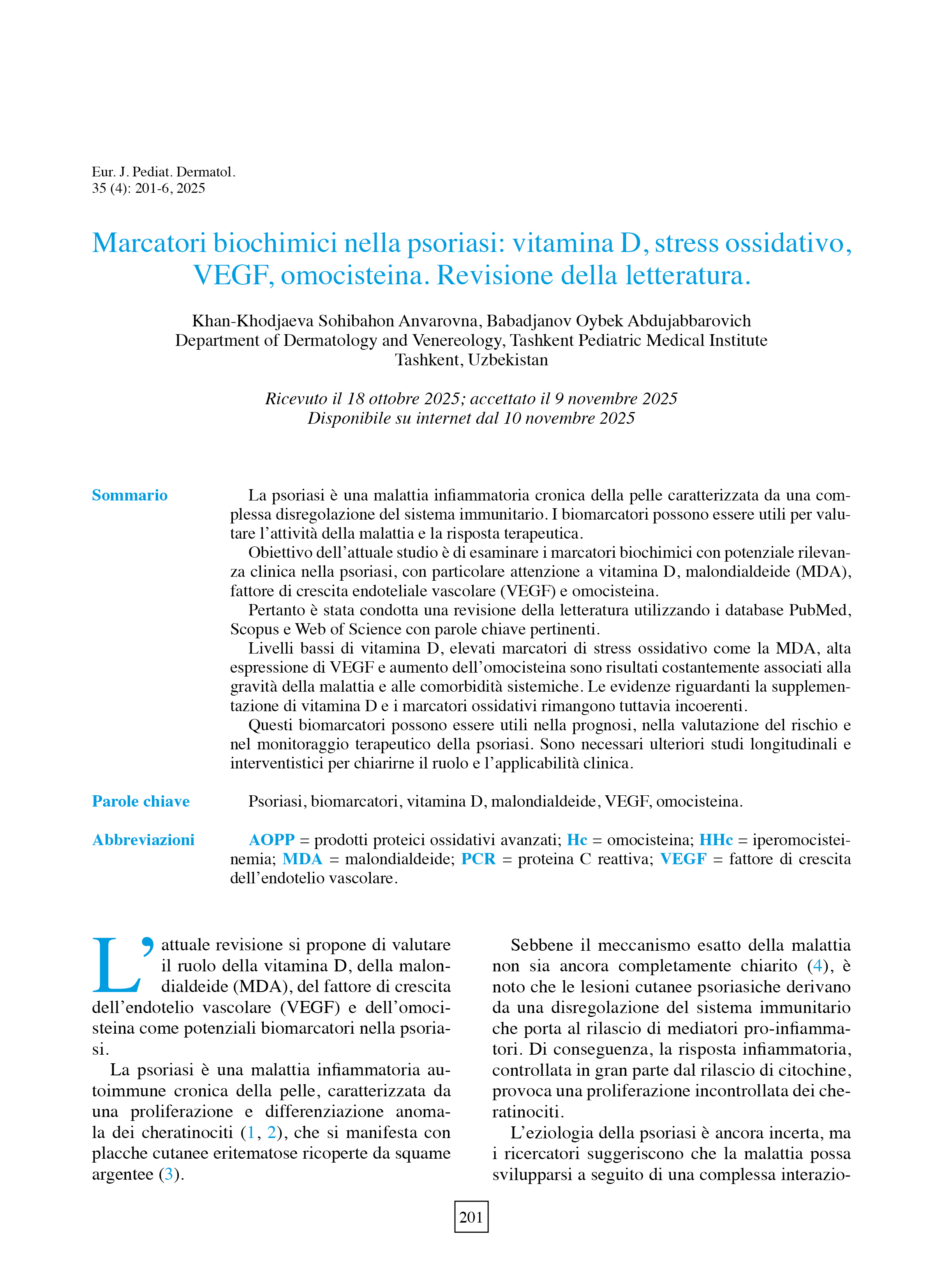Biochemical markers in psoriasis: vitamin D, oxidative stress, vegf, and homocysteine. Literature review.

Downloads
DOI:
https://doi.org/10.26326/2281-9649.35.4.2857How to Cite
Abstract
Psoriasis is a chronic inflammatory skin disease characterized by complex dysregulation of the immune system. Biomarkers may be useful for assessing disease activity and therapeutic response.
The objective of the current study is to examine biochemical markers with potential clinical relevance in psoriasis, with particular attention to vitamin D, malondialdehyde (MDA), vascular endothelial growth factor (VEGF), and homocysteine.
Therefore, a literature review was conducted using PubMed, Scopus, and Web of Science databases with relevant keywords.
Low vitamin D levels, elevated oxidative stress markers such as MDA, high VEGF expression, and increased homocysteine have been consistently associated with disease severity and systemic comorbidities. However, evidence regarding vitamin D supplementation and oxidative markers remains inconsistent.
These biomarkers may be useful in prognosis, risk assessment, and therapeutic monitoring of psoriasis. Additional longitudinal and interventional studies are needed to clarify their role and clinical applicability.
